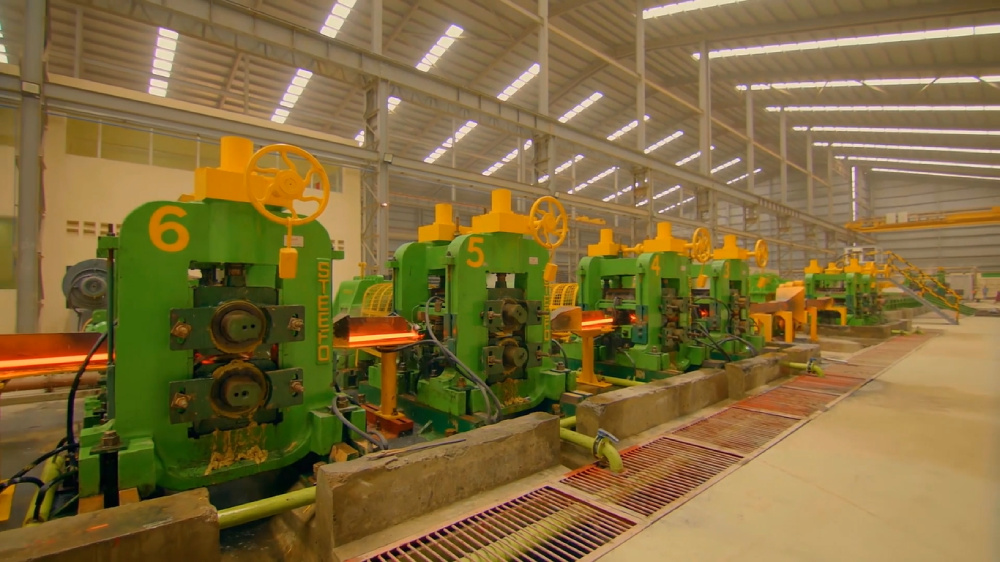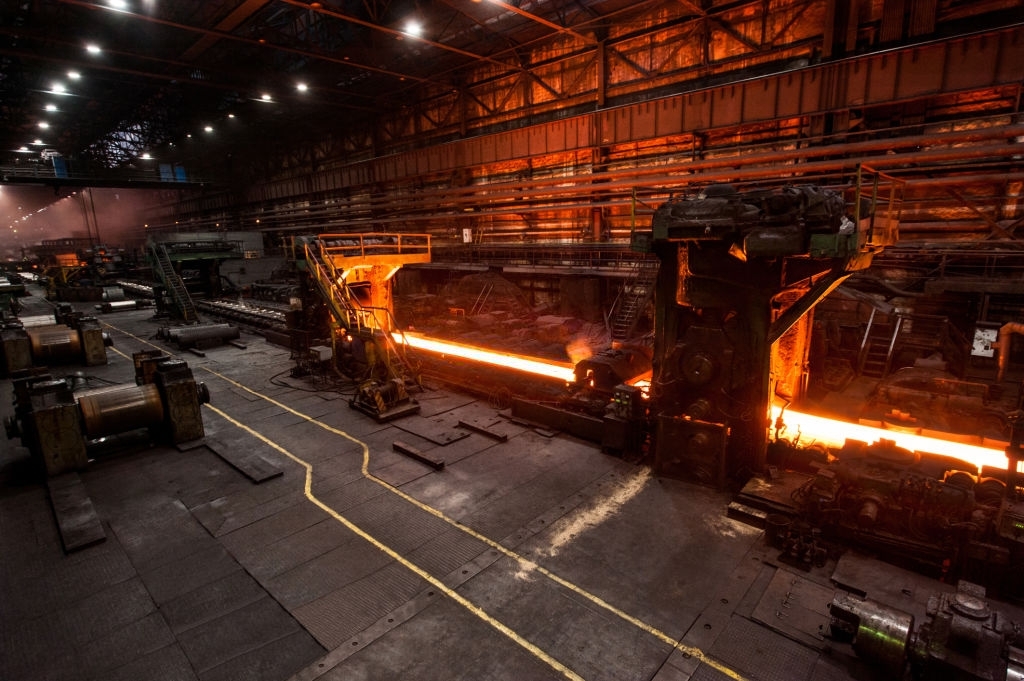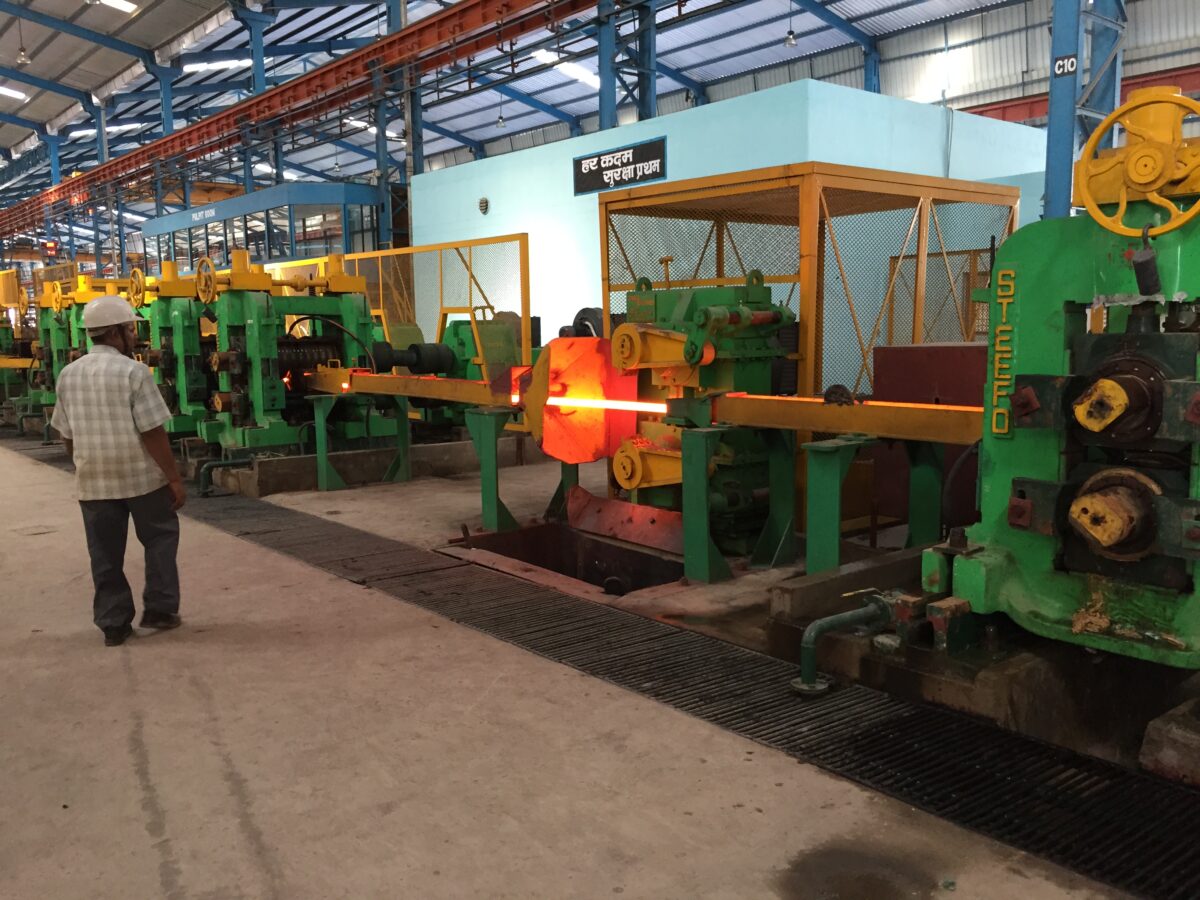Setting up a structural mill is a complex undertaking that requires expert guidance and support from reliable rolling mill manufacturers. Turnkey solutions provide a comprehensive approach, offering a ready-to-use solution that saves time, effort, and resources.
This article delves into the step-by-step process of consulting a rolling mill manufacturer in India for turnkey solutions. Each stage of the journey, from project assessment to commissioning, plays a crucial role in ensuring a successful and seamless implementation of a structural mill.
Initial Contact and Information Exchange
The first step in consulting a rolling mill manufacturer for a turnkey solution is to establish initial contact and share essential project details. This phase involves reaching out to the manufacturer to express interest in their services and provide comprehensive information about the project. Key project details to provide at this stage include:
Project Goals and Objectives
Clearly define the objectives of your rolling mill project. Specify the desired production capacity, types of products to be manufactured, and any unique requirements. Understanding the project goals allows the manufacturer to tailor the solution accordingly.
Technical Specifications
Share technical specifications, such as the size and weight of the materials to be rolled, rolling speeds, and quality standards required. This information assists the manufacturer in selecting appropriate machinery and equipment.
Project Timelines
Outline the timeline for the project, including milestones and deadlines. A well-defined timeline allows both the manufacturer and the client to plan effectively and stay on track during the implementation process.
Budget Constraints
Indicate budgetary specifications and discuss the manufacturer’s requirements to deliver techno commercial proposals. Transparent communication about budget specification helps in finding cost-effective turnkey solutions without compromising on quality.
Project Assessment and Feasibility Study
After gathering the necessary project details, the rolling mill manufacturer conducts a comprehensive assessment and feasibility study. This evaluation is crucial as it determines the project’s viability and helps identify potential challenges. The project assessment includes the following:
Technical Evaluation
The manufacturer assesses whether their rolling mill machinery and equipment align with the project’s technical requirements. This evaluation ensures that the selected machinery is capable of handling the specified material and production capacity.
Project Challenges
During the feasibility study, the manufacturer should identify any potential challenges that may arise during the project’s execution. Whether it’s related to material specifications, production volume, or automation requirements, addressing these challenges early on is essential for a smooth implementation.
Cost Estimation
Based on the project assessment, the manufacturer provides a detailed cost estimation for the turnkey solution. This includes the cost of rolling mill machinery, installation, automation systems, and other related expenses. As a client, you can then evaluate the financial feasibility of the project and plan accordingly.
Customisation and Design
Once the feasibility study is complete, the focus shifts to customisation and design. A reputable rolling mill manufacturer will collaborate closely with the client to tailor the solution to meet their specific requirements and industry standards. This phase involves the following:
Collaborative Approach
Designing a turnkey solution requires a collaborative approach between the manufacturer and the client. This ensures that the solution aligns with the client’s expectations and allows for valuable input from both parties. The manufacturer’s expertise and the client’s insights combine to create an optimized solution.
Equipment Selection
Selecting appropriate rolling mill machinery and equipment is a critical aspect of the design phase. The manufacturer considers factors such as material compatibility, production capacity, automation capabilities, and cost-effectiveness to ensure the chosen equipment meets the project’s needs.
Integration Planning
Efficient integration of various components within the rolling mill is essential for its smooth operation. During the design phase, the manufacturer plans how different components, such as automation systems, sensors, and other technologies, will be seamlessly integrated into the turnkey solution.
Proposal Presentation and Agreement
With the design and customisation finalized, the rolling mill manufacturer presents a comprehensive proposal to the client. This proposal outlines the scope of work, project timeline, payment terms, and deliverables. You should carefully review and evaluate the proposal before entering into a formal agreement with the manufacturer. Key elements of the proposal and agreement include:
Scope of Work
The proposal should provide a detailed breakdown of the scope of work to avoid misunderstandings later on. It should specify the tasks to be completed, the responsibilities of each party, and the expected deliverables.
Project Timeline
Establishing a clear and achievable project timeline is essential to track progress effectively. The timeline should include milestones and deadlines to help both parties monitor the project’s status.
Payment Terms
Agreeing on transparent payment terms is crucial for a successful collaboration. The proposal should outline the payment schedule based on project milestones, ensuring fair compensation for the manufacturer’s efforts.
Intellectual Property Rights
Addressing intellectual property rights is crucial, especially if the turnkey solution involves custom designs or proprietary technologies. The agreement should clearly define the ownership and usage rights of any intellectual property resulting from the project.
Technical Expertise and Experience
Before proceeding with the project, it is vital to assess the rolling mill manufacturer’s technical expertise and experience. This step ensures that the chosen manufacturer has the necessary skills and knowledge to deliver a successful turnkey solution. Key aspects to consider include:
Relevant Experience
The manufacturer should have relevant experience in the design, manufacturing, and commissioning of rolling mill machinery and turnkey solutions. Experience in similar projects demonstrates their understanding of the industry’s specific requirements.
Industry Certifications
Verify if the manufacturer holds industry certifications and accreditations that signify adherence to quality standards and industry best practices. Certifications can provide added assurance of their capabilities.
Testimonials and Client Reviews
Gather feedback from previous clients regarding their experiences with the manufacturer. Testimonials and client reviews provide valuable insights into their professionalism, responsiveness, and commitment to delivering high-quality solutions.
Integration and Commissioning Planning
The integration and commissioning phase is critical for ensuring the success of the turnkey solution. During this stage, the rolling mill manufacturer plans and prepares for the installation and integration of various components. Key considerations include:
Alignment with Project Timeline
The integration and commissioning plan must align with the project timeline to avoid delays and downtime. Adequate planning and coordination between the manufacturer and the client are essential to meet project deadlines.
Quality Assurance
Discuss the manufacturer’s quality assurance processes, testing protocols, and safety measures during the installation and commissioning. A thorough quality assurance approach ensures that the rolling mill functions as intended and meets the specified quality standards.
Training Programs
Inquire about the training programs the manufacturer offers to the client’s team for the operation and maintenance of the hot rolling mill. Proper training is crucial for the client’s personnel to utilise the turnkey solution efficiently and avoid unnecessary downtime due to operational issues.
Project Management and Support
A well-executed turnkey solution requires effective project management and ongoing support. During this step, the manufacturer and the client establish clear communication channels and responsibilities for efficient project execution. Key components of project management and support include:
Project Coordination
Establish a dedicated team responsible for coordinating all aspects of the project. Effective project coordination ensures that tasks are completed as scheduled, and potential roadblocks are addressed promptly.
Regular Updates
Schedule regular progress updates and meetings to keep all stakeholders informed. Effective communication between the manufacturer and the client fosters a collaborative environment and ensures transparency throughout the project.
After-Sales Support
Discuss the after-sales support and maintenance services offered by the manufacturer. Post-commissioning support is essential for addressing any operational issues that may arise and ensuring the smooth functioning of the hot rolling mill.
Training and Knowledge Transfer
The success of a turnkey solution also depends on the client’s ability to operate and maintain the rolling mill effectively. To facilitate this, the manufacturer should provide comprehensive training to the client’s team. Training and knowledge transfer should include:
Operational Training
Train the client’s operators on the correct usage and operation of the rolling mill machinery and automation systems. Proper training ensures that the personnel can operate the equipment safely and efficiently.
Maintenance Training
Educate maintenance personnel on routine maintenance tasks and troubleshooting techniques. Well-trained maintenance teams can proactively address potential issues, minimising downtime and extending the life of the rolling mill.
Documentation
Provide detailed documentation, manuals, and reference materials for future reference. Comprehensive documentation aids in troubleshooting, regular maintenance, and the implementation of best practices.
Unlock Success with Our Turnkey Solutions for Hot Rolling Mills
Are you ready to unlock the path to unparalleled success in the hot rolling mill industry? Look no further! Embrace our expertise as a leading hot rolling mill manufacturers in India, offering top-notch turnkey solutions tailored to your unique needs.
Our team of skilled engineers and industry experts will guide you through every step of the process, from initial consultation to commissioning. Witness the seamless integration of cutting-edge rolling mill machinery, automation systems, and unparalleled customer support that empowers your business to achieve exceptional productivity and quality standards.
Contact us at +91 87589 98607 or email us at marketing@thesteefogroup.com today to learn more about how our turnkey solutions can help you business!







